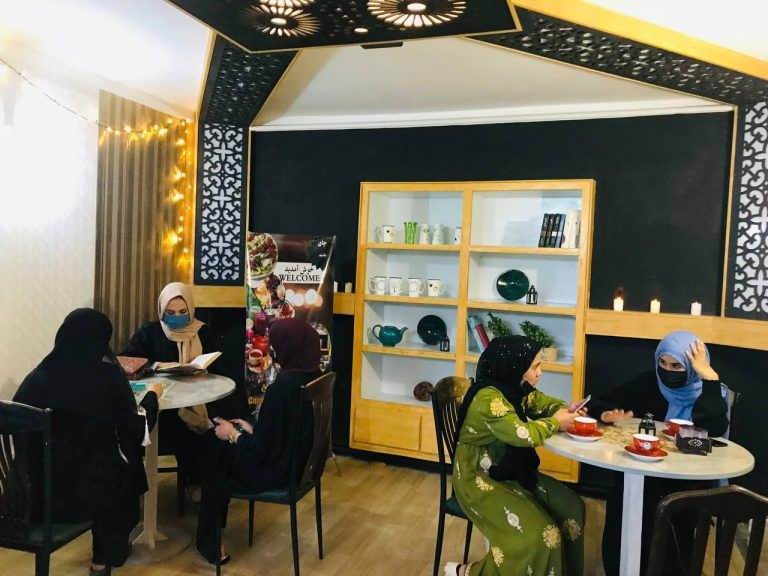KABUL (Khaama Press): The resurgence of the Taliban in Afghanistan has raised significant concerns about the future of women and their rights. During its previous rule (1996-2001), the Taliban administration brutally suppressed women’s freedoms, depriving them of their rights entirely in the 1990s. Though this oppression did not last more than five years, two decades were insufficient to rectify it. With the Taliban’s return, women are again facing severe restrictions. The question is: If this situation persists, how many years and generations of Afghan women will suffer, and will there be an opportunity for recovery? Nadia Anjuman, a poet who lived in Herat during the 1990s, described her life and fellow citizens under the prevailing ideology: “I am an Afghan girl, and I forever lament.” While her life did not provide equal opportunities, her enduring poems left a significant impact. Among these verses, one that has become a beacon for women over the past two decades and has shifted the discourse towards gender equality in Afghanistan is: “Though I am silent for long, the melody does not fade from my memory. Because every moment, through whispers, I express the words from my heart. I remember that cherished day when I broke open the cage; I’ll raise my head from this isolation and sing joyously. I am not a weak willow that shakes from every wind. I am an Afghan girl, and I forever lament.” While Nadia was a victim of the ignorance that engulfed Afghanistan, her poetry continued to thrive after her passing, becoming a guiding light for women and men who defined their mission as “gender equality” and “democracy” over the last two decades. Not only Nadia but many other girls and women sacrificed themselves to pursue justice through this path. Ultimately, the achievements of these twenty years carry the essence of their firm determination. The return of an Islamic regime of the Taliban’s kind to Afghanistan (the same ideology that victimized Nadia and countless others like her) has become dire for all women and men. The twenty-year accomplishments across all domains essential to human life and civilization have been almost destroyed. It is unbelievable, however, that women have been banned from work, education, and leisure. Women are prevented from travelling without male companions. Recreational parks, attractive natural spots, educational and learning centres, baths, and beauty salons are closed to women. Afghanistan’s geography has become profoundly male-oriented, yet despite the inhumane environment and promotion of misogyny, women are challenging all imposed restrictions. For instance, a 26-year-old girl’s effort to establish a restaurant in the heart of Kabul echoes Nadia’s verse: “I am not the weak willow that shakes from every wind.” Samia Bahari, a 26-year-old girl living in Kabul, recently founded a restaurant in the New Kabul City square and has helped several girls who have been deprived of work and education to work in the restaurant. The interesting point about the restaurant is that Samia named it “Shama” (Candle) and designed its environment as “exclusive for women and girls.” In this safe environment initiated by Samia, women and girls can gather and, for a brief period, distance themselves from the humiliation and pain imposed upon them. Samia is among the employed girls in a restaurant where men are not allowed and only women and girls are served. Millions of women and girls have become confined to their homes due to various dangers that threaten their lives outside. In a corner of this restaurant, a young lady named Saadiyah welcomes and serves customers with a happy demeanour but an unsettled spirit. Saadiyah says, “My father is an addict. He lives on the streets. I have no brothers but five sisters; two sisters and I work at the candlelit restaurant to support our family financially.” Saadiyah worries about her sister’s future. She is concerned that her sister’s fate might follow a similar path. She prays for her sister to have the opportunity to pursue education and live in better circumstances. Her younger sister is in fifth grade; half of her day is spent at school and the other half, alongside Saadiyah, at the restaurant. Saadiyah needs more supporters to encourage her sister’s education, provide her with books, and celebrate her successes in her educational journey. Nevertheless, she does not let her sister face these challenges alone. On the other hand, some young girls are busy serving the restaurant’s guests on the other side. Each has either dropped out of university or been deprived of continuing their studies for various reasons. They have been away from pen and paper for a long time, and instead, they work with plates and utensils daily. Samia Bahar, the restaurant manager, says, “People always grow within restrictions. Without limitations, there is no pressure, and it is this pressure that shapes a person.” She describes the purpose of starting this restaurant as assisting girls and women who need places like “Shama” (candle). In addition to the dishes customers order, the restaurant serves cold and hot beverages (tea and coffee) to make the patrons self-sufficient in not having to go elsewhere. Samia states, “The main goal of creating this women-exclusive restaurant was to find a way to help women and girls who have faced psychological and emotional challenges after recent restrictions.” On the other hand, the women who visit this restaurant are happy and content with its atmosphere. A young lady enjoys a coffee with her friend and speaks about her interest in the restaurant, saying, “I was surprised when I came to this restaurant and realized that from the manager to all the employees, they are all women.” According to her, “This is truly excellent. In times when restrictions have encompassed everywhere for women, a young lady, by establishing this restaurant, demonstrates that women can work and contribute in society just like men.” The restaurant is equipped with computers embedded with valuable and exquisite books. Patrons can utilize the advantages of being in the restaurant. Samia states that the “Shama” restaurant’s environment is designed to empower anyone who enters there. It is as if no force is superior to the individual, and only they can make decisions. This space, which instils a sense of autonomy in the minds and behaviours of the visitors, is entirely contrary to the atmosphere imposed on women outside.







